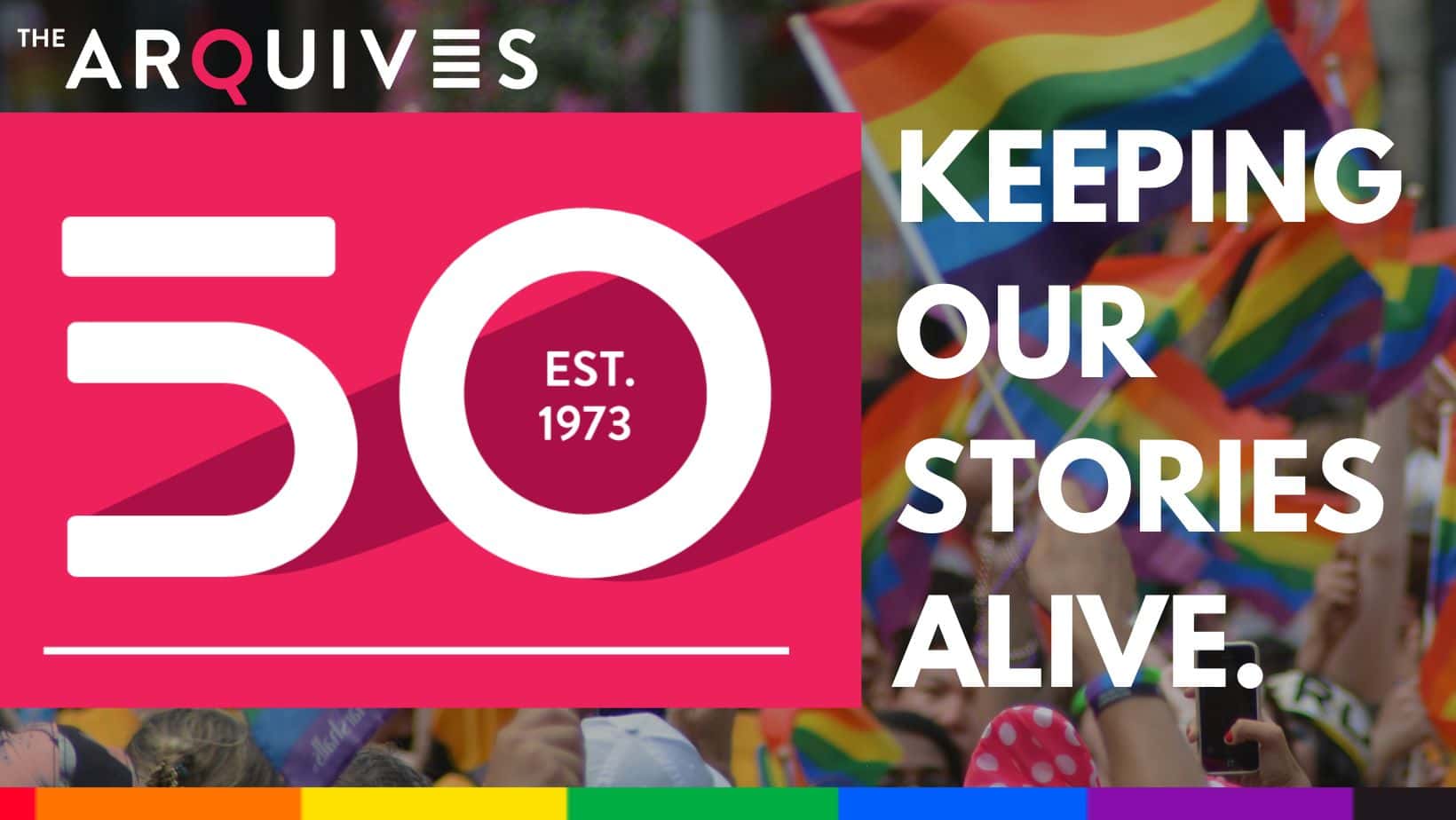Throughout the years, The ArQuives has preserved the records, books, videos, artifacts, and more of the LGBTQ2+ community.
We collect and share these powerful stories that have impacted the experiences of queer folks across Canada, and we are honoured to celebrate our 50th Anniversary with the many people who make this work possible – and that means you! Throughout the year, we will be hosting events, sharing digital content, and connecting with you to help share this memorable historic milestone.
Interested in sharing how The ArQuives has supported you over the years? Click here to submit a testimonial today.
50th Anniversary Events
Coming soon…
Volunteer Stories

Alan Miller, ArQuives Volunteer:
“I had no idea I would become so passionate about recording history… I also had no idea then that I would be helping to process LGBTQ2+ materials and stories to this day!
Over the years, I’ve seen The ArQuives overcome many challenges, evolve, and grow. It’s been incredibly rewarding to be part of such an essential community-building project…
There’s so much more work to do as we collect, preserve, and share stories from LGBTQ2+ people whose voices have been under-represented…”

Courtnay McFarlane, ArQuives Volunteer:
“One story that I think everyone should know is that much of the Black queer activism and community built over the years can be traced back to Dewson House. This collective-run household in Dufferin Grove started in the 1980s was a thriving hub of Black gay and lesbian activism in Toronto, and out of this hub came Sister Vision Press – the first and only Black women of colour press in Toronto – and Zami, the first visible queer organization in the city for folks who were Black and Caribbean. Dewson House was behind many, many other groups as well!
Storytelling is important in part because we may find ourselves on certain paths, yet don’t necessarily know how those paths were made.
That’s why I want people to know the origins of Blockorama and Black Coalition for AIDS Prevention (BlackCAP) – because they can benefit from knowing how the work they’re doing now is connected to what came before.”

